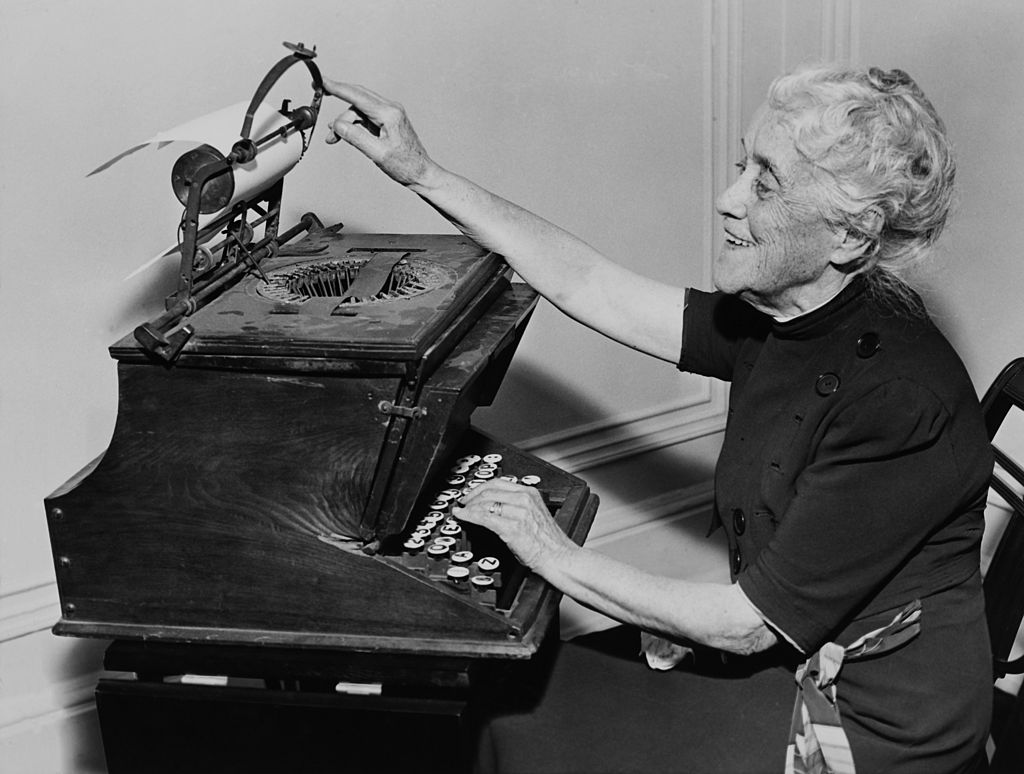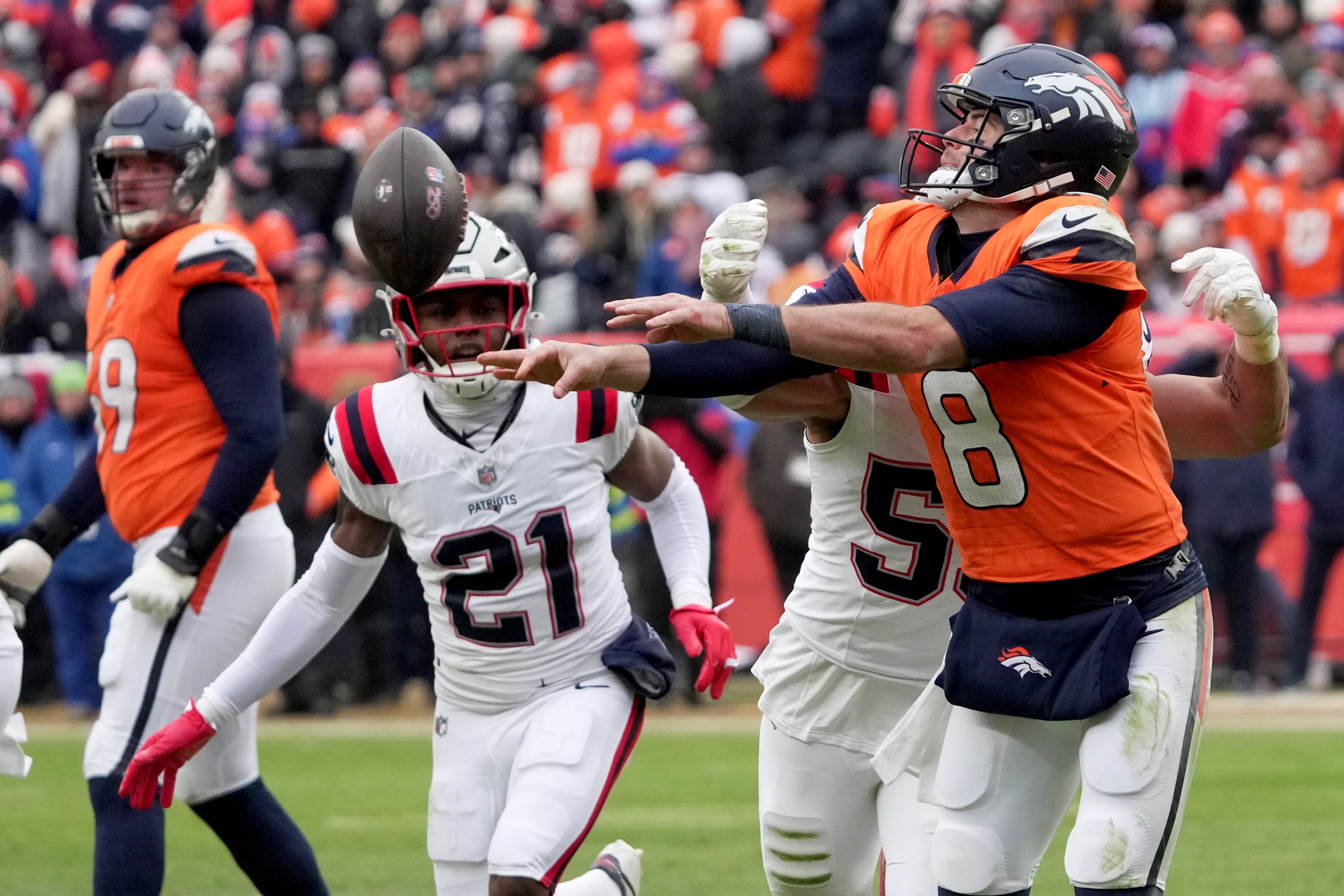Hello! Welcome to this post, which exists to convey helpful information to you, someone who might be interested in having their work published on Defector, about how to best go about accomplishing that goal. What I'm saying is that this is the official guide to pitching Defector.
Before we go any further, you should familiarize yourself with our freelancer policies, which were created in conjunction with the National Writers Union.
OK, now let's talk pitches. What makes a good Defector pitch? If I were to answer that question in typical Annoying Editor fashion by writing something like, "At Defector we are interested in stories that have something to say," you would be right to just close the tab and conclude that this post is not at all helpful. I will not do that. Instead, I will adhere to a separate classic Annoying Editor principle: it is always better to show rather than tell.
So here is what I have to show you: six pitches that Defector editors have received during the site's existence that were good enough to be turned into stories that were published on the site. These pitches vary in length, subject matter, and tone, but I think you'll find some common threads that unite them, namely: a strong indication of what the finished piece will look like, a writer who has real command of the topic, and a good sense of how any necessary reporting will be accomplished.
Here is the pitch that eventually turned into "Who Is The 'Right' Kind Of Refugee?" by Luisa Rollenhagen:
In 2015, thousands of Syrian refugees arrived in Germany, fleeing the joint bombings orchestrated by Vladimir Putin and Syria's dictator Bashar al-Assad. In total, about 790,000 Syrians would end up settling in Germany as a result of the years-long civil war in Syria. Although German Chancellor Angela Merkel's initial mantra of "We Can Do This" projected a certain optimistic spirit of solidarity, the reality soon set in: Racist backlash, convoluted bureaucratic asylum processes, and tightened national borders, and a marked indifference to human beings drowning in the Mediterranean and freezing to death at the Polish-Belarussian border became par for the course.
Fast-forward to now: Two million Ukrainians are said to have fled Ukraine so far, and as Putin's forces continue their assault on several large Ukrainian cities, the numbers will probably continue to rise. Thousands arrived at Berlin's central station over the weekend alone. There to great them were hundreds of volunteers offering food, clothes, shelter, and other resources. The EU announced an unbeaurocratic asylum process for Ukrainian refugees that immediately grants them residency permits for a year, with uncomplicated options to extend.
Among the volunteers are many Syrians who were themselves refugees not too long ago. Tareq Alaows, who fled Aleppo in 2015 and has since joined the Green Party in Germany and is an activist for refugees, has been coordinating donations and went to the Polish-Ukrainian border over the weekend to particularly help Black and POC refugees in the country who've been denied the same level of protection and help that white Ukrainians have received. For Alaows, the need to help was a given, and he's glad to see the high level of solidarity he's experienced during this war so far.
But the painful parallels to the war in Syria, the inaction of the global community to Putin's aggressions in 2015, and the stark differences between the way refugees from Ukraine and refugees from other countries are treated by the European Union and Germany have been hard to process. Add to this the fact that press coverage has often been openly racist, speaking of Ukrainian refugees as "good refugees" who are "civilized," as opposed to those fleeing war in Afghanistan, Iraq, and Syria. The implications aren't just clear: They're being spoken out loud.
Alaows and other Syrian volunteers are now doing double duty: Galvinized by empathy and recognition, they're organising to help and advise Ukrainians suddenly finding themselves fleeing war, while also criticising the racist double standards of the EU when it comes to refugees and demanding that all migrant policies be as humane and unbureacratic as what we're seeing right now.
Alaows told me he'd be happy to connect me with other Syrians in Berlin who are currently involved in assisting Ukrainian refugees, and he also said I could come along to any volunteer activities he'll be organising in the coming days. I also want to reach out to Wiebke Judith, an advocacy officer for Pro Asyl, who's spoken out a lot about how this war is showing us what is possible in terms of refugee assistance in Germany and the EU.
My only issue is that I'm currently in Spain and am not due to return to Berlin until Sunday, although I could return on Friday if something big is planned for the weekend. I'm doing phone interviews right now but obviously I think it would be really good to accompany Alaows or someone else in their volunteer work. My gut tells me that this issue is going to be continuing for a while and that assistance actions are going to continue being needed in the coming days and weeks. What do you think?
Anyway, let me know what you think! Also happy to hop on the phone and discuss further if you have any questions and would prefer to chat.
I hope you're doing well otherwise.Luisa Rollenhagen
Here is the pitch that eventually turned into "The Columbus Clippers Made Public Sports Ownership Work. Can Anyone Else?" by Michael Waters:
In 1971, Columbus, Ohio lost its only baseball franchise—the minor league team the Columbus Clippers—to a city in West Virginia. The disappearance of the nearly 100-year-old team hit the community hard, and six years later, city officials decided to do something radical: they bought back the Clippers.
For $25,000, the city took the Clippers out of private hands, and turned over management responsibilities to the county’s Parks & Recreation Department. The baseball team, in essence, became a public utility. It was an incredibly successful investment. The Clippers are now worth $25 million, and the team counts Derek Jeter among its alums.
Today, when we think of sports owners, we think of billionaires: Jerry Jones, Mark Cuban. But private ownership means sports teams are rarely accountable to the communities that embrace them. Sports teams switch cities in a heartbeat, such as when a new owner takes over or when another locality offers a tax break.
While community-owned teams are common in Europe—Germany’s Bundesliga requires fans to own the majority of its teams, for instance—in the U.S., examples are rare. That’s thanks to the interventions of the MLB (which blocked a McDonald's heiress from donating the Padres to the City of San Diego in 1990) and the NFL (which now requires that its teams be run privately, with the grandfathered-in exception of the Packers).
Yet public ownership has a few key advantages: it keeps the cost of tickets down, and it stops these franchises from moving to bigger cities.
The Clippers, for instance, are now the oldest sports franchise in Columbus, and the cost of attendance remains incredibly cheap. Nearly half a century later, the team still offers 10-cent hot dogs every Tuesday night.
I’d love to pitch a ~2,000-word piece focused on the Columbus Clippers that also explores the wider possibilities of publicly owned teams. Many sports scholars, including Stephen R. Keeney and Edward A. Fallone, have advocated for fan-owned and city-owned sports teams.
And some other examples have existed: city governments in Harrisburg, Toledo, and Scranton have all, at various points, owned their minor league teams.Michael Waters
Here is the pitch that eventually turned into "In Search Of A Hot Pink Bitch Named Breakfast," by Annie Rauwerda:
In March 2018, a post in a Facebook Dogspotting group introduced the "hot pink bitch" named Breakfast to the world. I've been enamored with Breakfast for the past four years and after some extensive searching through NYC's official dog registry and a few Instagram hashtags, I've found him! He's alive and well (but no longer hot pink, sadly). His owners, who are in a punk rock band, are eager to be interviewed—and I am eager to write about them!
Defector's got so many great articles about these sort of searches! I really like Brian Feldman's articles. Let me know if Breakfast could be a good fit for you. I'm thinking ~1200 words but can be pretty flexible.
Thanks and let me know!Annie Rauwerda
Here is the pitch that eventually turned into "Son Heung-min Fancams Are More Than Just Internet Ephemera," by Jason Jeong:
Hope all's well and that you're having a great end to the week. I wanted to pitch a story for Defector on post-game fancams of Tottenham forward Son Heung Min and how these low-production fan videos represent cultural validation for Korean viewers. Given Son's Puskas win yesterday and his place at the top of the Prem scoring race, I thought this would be a timely piece that goes into the larger significance of Korean Jesus' recent world-class form.
Plenty of articles have talked about Son’s popularity in Korea, where TV stations air daily reruns of his games dating back to the Obama Administration. But I want to explore a specific sub-genre of Korean entertainment – the post-game Son fancam. These YouTube videos, usually hyper-zoomed iPhone recordings from fans in the nosebleeds, track Son around the pitch as he trades daps and shoots the shit with opponents after a match. Racking up millions of views, they have neither audio nor production value – just shaky glimpses into the boring banalities following literally every soccer match ever played. But I argue that the existence and popularity of these videos go beyond mere fandom. It's vicarious Tarantino-esque gratification and validation for a country that's unfamiliar with seeing one of its own in the international spotlight.
In her book Minor Feelings, Cathy Park Hong wrote that the dominant cultures (read: white) have “all of Western history, politics, literature, and mass culture on their side, proving that [Asians] don’t exist.” Coming from a country better known for producing sedans than sportsmen, Son is not only the first athlete, but probably first Korean that has realized bona fide superstardom in the West without being a stereotype or novelty. Someone who's globally respected, if not beloved, Son is the superlative of all of South Korea’s sporting and cultural dreams. So although a 20-second clip of Son hugging de Bruyne may seem thoroughly pointless to most, for Koreans, it is symbolic recognition and legitimization from the cultures that have dominated the sport ever since two English guys thought it would be real fun to kick a cow's bladder around. And for all the asthmatic Asian boys and girls out there, we've finally found our hero. It's a dynamic that I'd love to explore more for you guys.
Let me know what you think when you get a chance and thank you for taking the time to read! I know this pitch is a bit broader than the pieces you guys normally publish, but I'm a big fan of your work and wanted to see if you'd want to work with it.Jason Jeong
Here is the pitch that eventually turned into "This Family Has Tattooed The Holy Land For Centuries," by Casey Taylor:
In Jerusalem, there are more tattoo shops than ever before, but there is only one whose name is legendary in the region. Razzouk Tattoo, run by Wassim Razzouk since the mid-aughts, has been involved in tattooing in the Palestine and Egyptian region for over 700 years. It's been about 400 since they were able to escape to Jerusalem and set up shop permanently. Wassim still uses stencils for ancient Coptic signs and symbols that were brought to Jerusalem centuries ago, priceless artifacts that are used today on Christian pilgrims fulfilling a birthright and Palestinian Muslims looking to be rebellious all the same.
Wassim didn't want the gig. It was a dirty job to him, all the blood and, his father being an old school tattooer without a real shop, a lack of hygiene. Until Wassim took it over, the shop was operated out of a junk store, converted from the carpentry workshop his grandfather tattooed out of, building coffins for the dead and tattooing pilgrims so they could make the same voyage peacefully. However, when his father was nearing retirement, Wassim's guilt finally gave in when he read an interview with his father lamenting that centuries of tradition would end, and found books referencing his family's name as crucial to the religious history of North Africa. He told his father he would apprentice, and when he saw the tears in the eyes of the first pilgrims he inked (helping his father whose eyes weren't cooperating that day), he never looked back.
Tattooing is inseparable from religious history in the area, dating to when the Islamic Revolution forced Coptic Christians, the oldest denomination on the planet, into pariah status. They were treated the same way lessers are always treated when a new group of people overtake a country, and the ones that didn't get killed were forced to tattoo themselves with Coptic symbols so they could be identified as Christian. Eventually, those symbols became a sign of resistance, and a Coptic cross tattooed under your wrist was the only way you were allowed access to the Coptic churches in the region. The Ethiopian population, historically a safe haven for the religiously persecuted, also features heavily tattooed Christians, normally adorned in old Coptic and Gondar symbols on their hands and faces. Rather than a faux pas, it was a sign of holiness and devotion across regions and lands for safe passage.
It wasn't just for Christians, either. One of the oldest tribes in the history of Judaism, the Beta Israel, are perhaps the only Judaic tribe known to historians and scholars that not just allows tattooing, but is an essential part of its culture. Like the Ethiopian Tewahedo adherents, they are also adorned in Coptic symbols, falsely identified by some modern scholars as "Christian" in nature. Indeed, there was Christian conversion forced upon some of the Beta Israel, but in Ethiopia the majority of the symbols we associate with Christianity (the cross, most prominently) are considered pre-Christian--because Ethiopia adopted Christianity before any other country, before it became the ecumenically aligned western or eastern canon of the past 1,200 years. The Beta Israel were tattooed for many reasons, but one of them was for the same reason as the Copts: safe passage to Ethiopia during centuries of of unrelenting slaughter at the hands of the Romans, the Catholics, the Islamists, and finally the English.
The unifying thread is the tattoo, the ink spilled and shared among the oppressed so they could communicate with each other, share the history nobody wanted preserved, and survive through countless revolutions, political systems, wars, genocides, and god knows what else. Today, Razzouk Tattoo is primarily a tourist destination, and Wassim himself will tell you that. It doesn't lessen the experience for him--he is a Coptic himself and doesn't spend time questioning the faith of others--but he does admit that it's a bit more special to tattoo some customers, like the Armenians who have seen their faith and churches and empires burn, persevering and keeping the faith regardless. As the world loses meaning, it can be a comfort to hold onto the things that have meant something to ourselves, our ancestors, and the revolutionaries whose names we will never know.Casey Taylor
Here is the pitch that turned into "Prokick Australia Changed Punting, And Football, By Doing What Comes Naturally," by Robert O'Connell:
In reporting a recent article on the changing shape of the punt game, I spoke with Nathan Chapman, the founder of Prokick Australia, the Melbourne-based academy dedicated to turning Aussie rules players into top-shelf American football punters. Prokick is pretty much the reason for the Australian punting boom. Its alums include five Ray Guy winners and, in the NFL ranks, Michael Dickson of the Seahawks and Mitch Wishnowsky of the 49ers, two of the highest-rated punters (in distance and pin-deep percentage) in recent years.
I'd love to write a piece on the history and methodology of Prokick. Chapman started the academy after falling short in a tryout for the Packers, and he gambled his finances on its success. He built the curriculum himself--how to modify Aussie technique to maximize hangtime and coffin-corner accuracy--and he's fascinating on the topic of earning legitimacy for his countrymen in the early days. "I've got this kid in Australia who can kick a ball really good," is how he says his early pitches to colleges went. "Let me send you a DVD. And by the way, he's never played the game before, never faced a rush, but you should probably give him a scholarship."
My piece would combine a narrative thru-line--the story of Chapman guiding Dickson, Wishnowsky, or a present-day student through the program--with backstory, incorporating detail on technique and the sport-cultural components that make Australians such useful punters. I have ready access to Chapman and his colleagues, and there's plenty of film they're able to pass along on their regimens, etc. Please do let me know if this holds interest--I'd be happy to get to work on it ASAP.Robert O'Connell
OK, here's hoping that was helpful! When you're ready to pitch us your own idea, just send it to pitches@defector.com.






